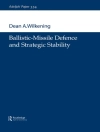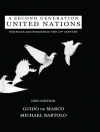A point of departure for this book is the paradox between the seemingly limitless promise modern web technologies hold for enhanced political communication and their limited actual contribution. Empirical evidence indicates that neither citizens nor political parties are taking full advantage of online platforms to advance political participation. This is particularly evident when considering the websites of political parties, which have taken on two main functions: i) Disseminating information to citizens and journalists about the history, structure, programme and activities of the party; ii) Monitoring citizens’ opinions in regard to different political questions and policy proposals that are under discussion. Despite the integration of websites into political parties’ “permanent campaigns” (Blumenthal), television continues to be seen as the core medium in political communication and one-way and top-down communication strategies still prevail. In other words, it is still “business as usual”.
This book questions whether Web 2.0 could help enhance citizens’ political participation. It offers a critical examination of the current state of the art from diverse perspectives, highlights persisting gaps in our knowledge and identifies a promising stream of further research. The ambition is to stimulate debate around the party-citizen ‘participation mismatch’ and the role and place of modern web technologies in this setting.
Each of the included chapters provide valuable explorations of the ways in which political parties motivate, make use of and are shaped by citizen participation in the Web 2.0 era. Diverse perspectives are employed, drawing examples from several European political systems and offering analytical insights at both the individual/micro level and at broader, macro or inter-societal systems level. Taken together, they offer a balanced and thought-provoking account of the political participation gap, its causes and consequences for political communication and democratic politics, as well as pointing the way to new forms of contemporary political participation.
Tabella dei contenuti
Chapter 1. In search of a return to communication (studies) as a factor of social change: Web 2.0 and political participation, Giovandro Marcos Ferreira (Federal University of Bahia, Brazil)
Chapter 2. Descriptive indicators of photojournalistic treatment of political leaders from the standpoint of content analysis, Joaquín Lopez del Ramo (Universidad Rey Juan Carlos, Spain)
Chapter 3. The emergence of Spain’s Podemos (We Can) Party: Challenges for political communication practice and study, Karen Sanders (CEU San Pablo University and IESE Business School, Spain)
Chapter 4. Cosmopolitanism, media and global civil society: From moral to political agency, Peter Dahlgren (Lund University, Sweden)
Chapter 5. Talk to me and I will talk for you: Relationships between Citizens and Politics on the example of Portuguese Members of Parliament online communication, Evandro Oliveira (Leipzig University and University of Minho) & Gisela Gonçalves (University of Beira Interior, Portugal)
Chapter 6. The research project ‘New media and politics: citizens’s participation in the websites of Portuguese political parties’: main results, J. Paulo Serra & Gisela Gonçalves (University of Beira Interior, Portugal)
Circa l’autore
Gisela Gonçalves has a master’s Degree and a Ph D in Communication Sciences, and she is Professor and Head of the Department of Communication and Arts of the University of Beira Interior (UBI, Covilhã, Portugal). She develops her research activity at Lab Com.IFP – a Communication, Philosophy and Humanities research centre. In 2014 she was elected vice-chair of the Organizational and Strategic Communication section of ECREA. Her current research interests are Public Relations Theories, Communication Ethics and Government Communication. Her work has been published in a wide range of public relations and communication management journals and in various edited collections. She authored the books ‘Introduction to the theory o public relations’ (2010); ‘The Dialogue Imperative’ (2012) and ‘Public Relations Ethics’ (2013).












